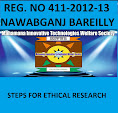Plastic be converted to manure: For petroleum-based plastics, the process of making manure is more difficult. Although an experimental treatment system was invented in 2017 to be used at wastewater treatment plants, there’s no effective way to convert petroleum-based plastic into fertilizer at home. Composting is a process of decomposition of organic solid waste (leaf litter, dead plants, food waste etc.) to form manure. Red worms cannot break down waste materials like pieces of synthetic cloth, plastic bags, broken glass, aluminium wrappers, nails and other plastic items. Agriculture researchers in Bengaluru install unit to convert plastic, biomass into manure. The experiment started in 2016 with 25 kg of plastic and biomass. It was later scaled up to a 200 kg capacity combustion chamber, fuelled by plastic, biomass, and locally made bio-briquettes. Biomass and plastics are two of the most common municipal solid wastes globally that have continuously placed a burden on the environment. It is therefore important that they are properly recycled. Thermochemical co-conversion offers a valuable opportunity to recycle biomass and plastics simultaneously into biochar, which reduces the time and cost of recycling them individually while producing a material with a wide range of applications
Chemical and environmental engineers detailed a method to convert plastic waste into a highly porous form of charcoal that has a whopping surface area of about 400 square meters per gram of mass. It could potentially be added to soil to improve water retention and aeration of farmlands. Biochar from waste has emerged as a vital solution for multiple contemporary issues. While the organic content and porous structure of biochar have granted it multiple benefits. Where the use of biochar is proven to be beneficial for enhancing the soil structure and water and nutrients retention ability, therefore, saving water and boosting yields in arid regions. Moreover, biochar is capable to sequester carbon from the atmosphere and permanently store it within the soil.
https://ssmitws.wordpress.com/2024/04/05/plastic-biomass-into-manure/


No comments:
Post a Comment